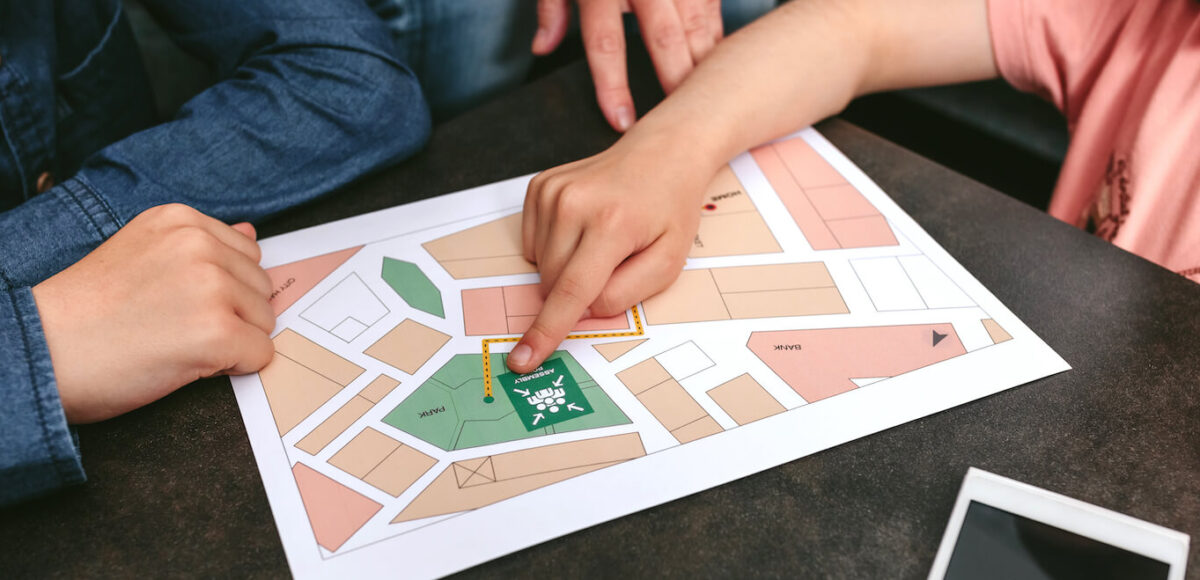No matter where in the world you live, wildfires can be a threat to your home. When you live in an apartment, things may feel out of your control. But there are still ways you can prepare for a wildfire.
Here are six things to know about wildfires and wildfire preparedness so you can be ready for anything.
1. Even Apartments Can Be Vulnerable to Wildfires
When you think of wildfires, you might picture houses, ranches, cabins, and other single-family buildings against the flames. But apartments can also be at risk, especially if your building is next to natural areas or undeveloped land. First, you need to acknowledge there’s a chance — no matter how small — of wildfires. Then, you need to get prepping.
2. What Areas Are More Prone to Wildfires?
If you live in the south, you’re more susceptible to tropical storms and should have a hurricane plan ready. If you’re in the north, you want to plan for winter storms like blizzards. Wildfires are natural disasters that can affect anyone anywhere — but some climates and locations are more at risk.
What causes forest fires? According to the National Park Service, humans are responsible for almost 85% of wildfires. These fires are either started accidentally (not properly extinguishing a campfire, carelessly tossing out cigarettes, etc.) or acts of arson. Lightning is another common cause. So, towns with dry climates and areas surrounded by nature and wildlands tend to be most affected by wildfires.
No matter where you live, you should have a wildfire plan. However, you might want to take extra precautions if you live in a state with a high wildfire risk, such as California, Nevada, or Texas.
3. Renters Insurance and Wildfires
An important step of natural disaster preparedness is knowing what’s included in your insurance policy. For example, does renters insurance cover wildfires?
Renters insurance typically covers damage from fires. This coverage usually includes damage to or loss of personal belongings but may not include cash or jewelry. Keep a running inventory of your belongings (with pictures) in case the unthinkable happens and you need to file a claim.
Remember that renters insurance usually only covers up to a certain amount. If you live in an area extremely prone to wildfires, your insurance coverage may include fires but not wildfires. Double-check with your insurance provider to know exactly what’s covered and how much coverage you have. You may want to request additional coverage depending on where you live and any antique or expensive items you own.
4. What Is Your Landlord Responsible For?
Whether or not your landlord is legally responsible for wildfire prevention, it’s in their best interest to protect the property. After all, they also have to deal with insurance claims, repair costs, and possible lost income if a wildfire damages or destroys the building.
Some safety measures you should expect your landlord to handle include:
- Ensuring smoke detectors, fire extinguishers, and fire sprinklers are working properly
- Maintaining inspections and safety certificates
- Ensuring there are clear and marked exits and emergency routes
- Clearing landscape, brush, and debris to reduce potential wildfire fuel
In most cases, your landlord will not be responsible for damage or destruction caused by a wildfire — which is why you should make sure you have proper renters insurance coverage.
5. How to Plan for Evacuations
You never know when you might have to leave your home at a moment’s notice. A wildfire evacuation plan is a must for apartment emergency prepping.
Plan your exit route.
At a minimum, you should know all the exits in your individual apartment, building, and community so you can make a swift escape. When an evacuation order is placed, local officials should have a route for you to take once you’ve left your apartment. This route will be based on the fire’s location, behavior, and trajectory.
Create a go-bag.
You should also have a go-bag ready. This bag should contain important documents (birth certificates, medical records, insurance policy, etc.), cash/ATM cards, medication, identification (driver’s license, passport), and enough clothing for a few days. If time allows, add other items like heirlooms, small valuables, computers and hard drives, and device chargers.
You should keep your go-bag in an easy-to-access location so you can grab it and go as soon as you get an evacuation warning or order.
Have a plan for your pets.
If you have pets, don’t forget to include them in your evacuation plan! Create a go-bag containing your pets’ food, treats, medications, and toys. If a wildfire is approaching but you haven’t received evacuation orders yet, make sure your pet is nearby. If possible, crate them ahead of time so you don’t have to wrangle them as you try to escape.
6. Emergency Items to Keep on Hand
You should have an apartment emergency kit ready, no matter what natural disasters are a threat. Hurricanes, fires, tornadoes — a well-stocked emergency kit can prepare you to evacuate or hunker down.
An emergency kit will make it easier to assemble your evacuation go-bag when the time comes. Essential emergency supplies to have include:
- Enough water and nonperishable food for at least three days
- Toilet paper and other sanitation supplies
- Flashlights and batteries
- Antiseptic wipes and hand sanitizer
- Face coverings
- A power bank and spare chargers
- First aid kit
- Over-the-counter and prescription medication
- A multi-tool
- Spare clothes
- Sleeping bags or blankets
- Personal hygiene items
You should check and replenish your emergency kit as wildfire season approaches each year. Ensure all the food is still good and hasn’t been contaminated, swap out any expired or worn items, and add any new items you think might be helpful in an emergency.
Life After a Wildfire
Preparing for a wildfire can help you stay safe, but what happens after the wildfire? With an evacuation, you may have to stay at a hotel or evacuation center for a few days. If your building makes it without any damage, you can likely return and resume life as normally as possible.
If your building is damaged or destroyed, it will be a bigger disruption to your life. For minor damage, the landlord will be responsible for making repairs in a reasonable amount of time, and you can move back in. For major damage, you may be displaced for longer or need to look for new housing. Check with your insurance provider to see if hotels or temporary disaster relief housing due to wildfire damage is covered by your policy.
Ease Your Stress with CORT Furniture Rental
Planning and preparing for disaster can be the first step in ensuring your family is ready for any situation. And when faced with uncertain times, it’s more important than ever to know who you can rely on.
At CORT, we know firsthand that the devastation of losing one’s home, possessions and cherished memories in a disaster cannot be overstated. That’s why CORT Rental has supported first responders, teams working on the front lines, and individuals directly affected by manmade and natural disasters. Our infrastructure is in place to hit the ground running.
While a hotel stay can help in the days following a fire or other disaster, repairs, rebuilding, and even access to your apartment can stretch on for months – leaving you in limbo while you try to get back to some sense of normalcy. Renting furniture through CORT and utilizing an unfurnished apartment or short term rental can help stretch your insurance dollars further, while allowing you to customize the space to feel more like not just any home, but your home.
Instead of the bland trappings of a cookie-cutter hotel, or running the risk of short-term rentals that are missing key day-to-day items, CORT can help you furnish your entire space: from beds and sofas to linens and kitchenware, and even electronics and decor. Plus, CORT Furniture Rental offers simple and painless delivery and assembly, so you can focus on more important things at hand.
Whether you’re dealing with the uncertainty and stress of relocating due to a natural disaster, or simply moving for work, CORT is here to help. With flexible lease terms and furnishing for the whole home, CORT can support you and your family. Visit your local showroom today to get started.







